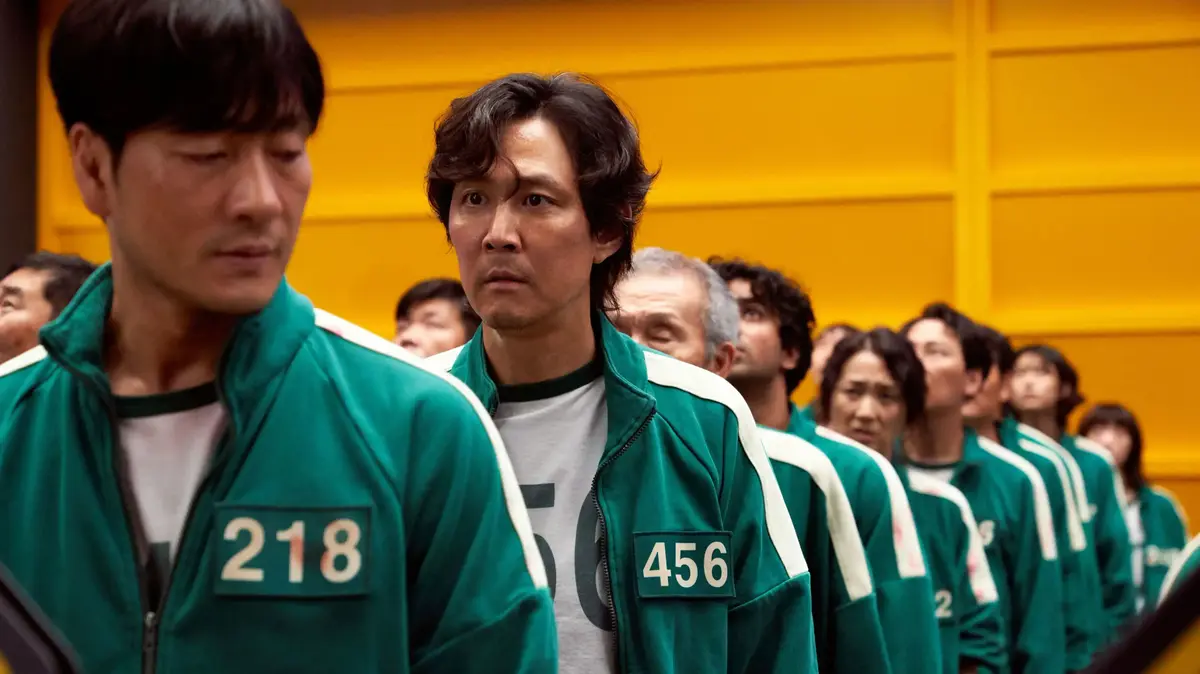It is the latest manifestation of South Korea's growing influence on the global cultural scene.
A new blow in its grid of entertainment for the general public.
Released on September 17,
Netflix's dystopian series
Squid Game
was a resounding success by becoming, in the space of a few days, one of the most watched programs on the American platform.
See also
Squid Game
, the phenomenon series that demonstrates the power of Netflix
Netflix was not mistaken and is already preparing to take advantage of the growing craze for Korean fiction series. "
Over the past two years, the world has fallen in love with incredible Korean content, made in Korea
," said Netflix content boss Ted Sarandos in a statement.
We have a strong commitment to Korea. We will continue to invest and collaborate with Korean storytellers across a multitude of genres and formats ”.
Sign of this trend, Netflix announced in February an investment plan of 500 million dollars (432 million euros) for the production in 2021 of series and films directed South Korea.
A bet that could pay off as this vein seems to gain in strength from year to year.
"The trauma of worsening inequalities is reflected on the screens"
Vladimir Tikhonov, professor of Korean studies at the University of Oslo.
After the phenomena BTS - for K-pop - and
Parasite
- for the cinema -
Squid Game
is only the latest sensation from a country that has long remained in the shadow of its Japanese neighbor, but whose audiovisual productions now stand out with panache.
"South Korea has become quite recently and quite quickly a very unequal society, over the past two decades,"
said Vladimir Tikhonov, professor of Korean studies at the University of Oslo, for whom social mobility has become
"much less possible"
since the devastating economic crisis of 1997.
"The trauma of worsening inequalities is reflected on the screens"
, he observes.
Read also
Squid Game
: How Jung Hoyeon Became South Korea's Most Popular Actress
A sharp and violent critic of a polarized society,
Squid Game
tells the story of a deadly competition involving 456 over-indebted men and women. Eager to survive, they will do everything in their power to land the grand prize of 45.6 billion won (nearly 33 million euros). The polished production and sumptuous scenography of these nine episodes conquered a very large audience around the world, to the point where, a few days after its release, Netflix had hinted that
Squid Game
could become the most watched program on the platform. An unexpected performance for a South Korean series.
Squid Game
takes up themes dear to South Korean cinema, such as poverty and the feeling of powerlessness in the face of social injustices that plague the country. Netflix
According to critics, despite its Korean framework, the themes addressed and the questioning of the excesses of capitalism found a very favorable echo with spectators around the world. For Brian Hu, professor of cinema at San Diego State University in the United States, the craze for the series testifies both to an appetite for original narratives that curb social inequalities, as well as for the stylistic "paw" Korean, a breath of fresh air in an entertainment environment dominated by Anglo-Saxon heavyweights.
“What is unique about
Parasite
and
Squid Game
is that if these
œ
Works depict poverty and class inequalities, they do so in a way that highlights Korea's technical and cinematic modernity
, ”he told AFP.
Read alsoHow
Parasite
is transformed into a social phenomenon around the world
Inspired by the country's violent history, sometimes subjugated by China, sometimes by Japan, South Korean artists form a vibrant cultural scene marked by the theme of power, violence and social injustice. The new wave of Korean cinema has thus known since the 2000s, the esteem of moviegoers and the most prestigious film festivals, including the Cannes Film Festival, where
Oldboy
had triumphed
, by Park Chan-wook. With its Oscar for best film, the feature film
Parasite
, in 2020, made Korean cinema popular through its satirical reflection on the poverty which still plagues the world's 12th largest economy today.
Even with these specificities in mind, the most daring South Korean projects still have to face the reluctance of investors, as was the case for
Squid Game
. Looped in 2011, the script of the series had failed because of its history "
too bloody, unfamiliar and obscure
", testified its director Hwang Dong-Hyuk. Finally accepted by Netflix, his series offers clear references to several collective traumas that have shaped the psyche of South Korea today, such as the Asian financial crisis of 1997 or the layoffs of Ssangyong Motor in 2009. The
Squid
bet
Game
was not without risk for Netflix.
Almost a month after its release, the historic player of streaming platforms takes the bet.
And Korean culture too.









